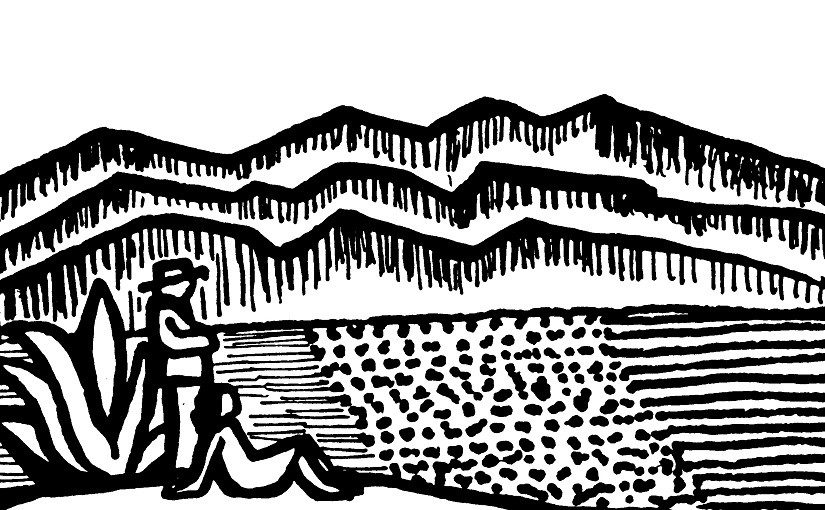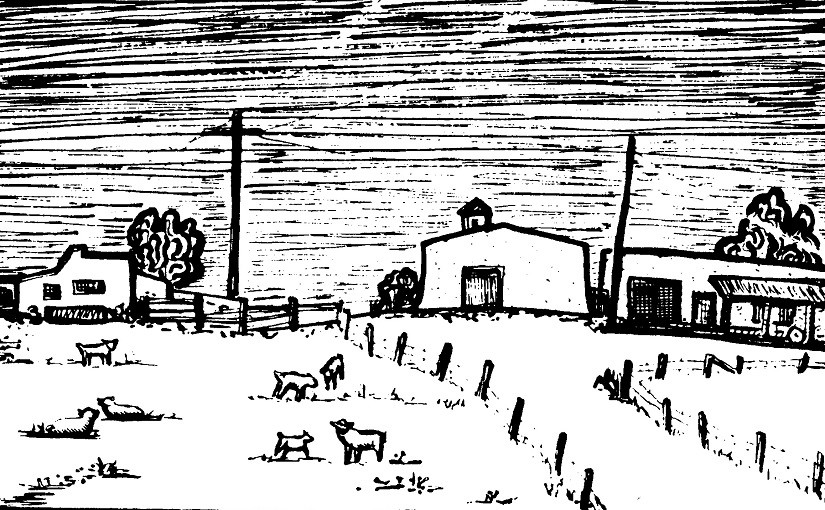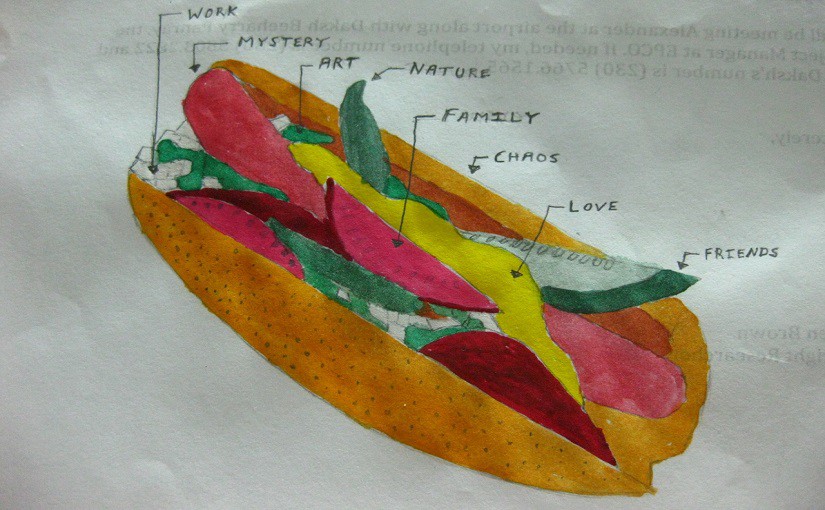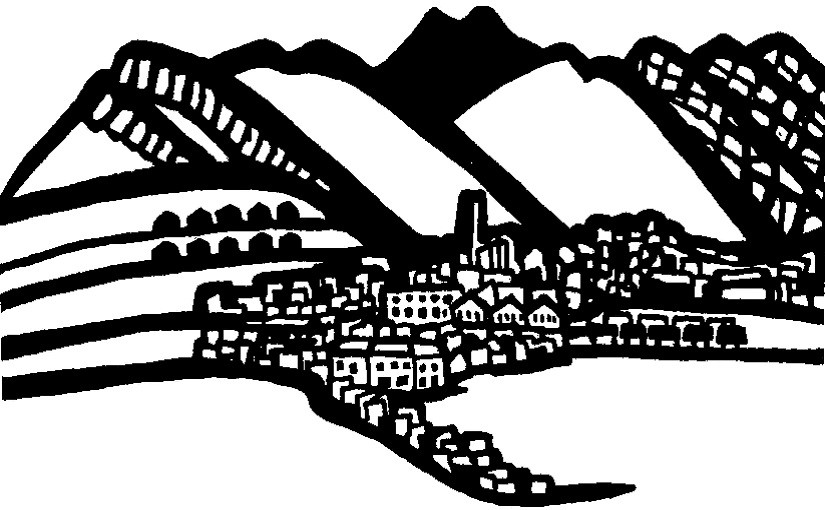There are people stockpiling guns, batteries, solar panels, burying shipping containers, buying gas masks, dehydrating food, filling hidden tanks with water, and lining underground shelves with food all around us. You may have seen their outposts in sun-blasted wastelands, have heard about surging weapon sales, or seen survivalist literature in your local bookstore and wondered. The people behind this movement, self-described ‘preppers,’ are generally hard to see due to their penchant for camouflage clothing, but my work gives me the privilege of direct contact with them: I primarily build commercial photovoltaic (solar) systems, but also off-grid and backup power systems. Preppers comprise a significant portion of our customer base for the latter portion of the business.
The internet, conveniently for one looking to learn more about this culture, is a breeding ground for communities of paranoid people; it creates a marketplace for fringe theories and products that would otherwise not exist in society. A cursory glance on the internet reveals that there are a few people with legitimate concerns regarding ecology and the sustainability of our industrial economy, but the overwhelming majority of the adherents seem to have already been attacked by some sort of brain-sucking amoeba that has left them constantly oscillating between schizophrenic fight or flight outlooks on life. Articles abound like: “When Colera Comes to Town.” “Martial Law Survival Strategies You Should Know.” “Body Disposal in a Crisis.” “Backcountry Belt Kit: Essential Tools to Carry Around Your Waist.” “How The Zika Pesticide Spraying Could Eventually Kill Us All.” There are a hundred times as many discussions about Chinese-made LED flashlights as there are about Malthusian economics.
I am accustomed to the preppers asking questions like, “Will this equipment withstand an electromagnetic pulse?” I have learned how to discuss Faraday Cages with them and to avoid voicing my questions about what they imagine the apocalypse will be like. I had perceived these people as benign and merely victims of marketing and politicking that breeds paranoia to generate sales and votes, until a recent conversation with an intelligent coworker, who is a devout member of the Church of Jesus Christ of Latter-Day Saints (Mormon), made me realize I might want to rethink my opinion. We had just finished building a backup power system on a McMansion, for a man who makes and sells Biblical interpretive videos, when there was a blurb on the radio about climate change. I couldn’t resist making a remark about how we need to make some dramatic economic and cultural shifts to avoid creating a living hell, that the alternative energy industry needed to grow by leaps and bounds.
“There are billions of dollars spent each year by people like Al Gore to make you think that we need to act immediately and change what we are doing,” he expressed with skepticism.
“Yeah and there are billions of dollars spent each year to make you disbelieve that it is happening. I saw it with my own eyes when I was visiting islands in the Indian Ocean a couple years ago. It is a terrifying prospect for hundreds of millions of people and we will not be immune to its effects here either.”
“I don’t deny that it is happening, just the cause.”
“So you don’t believe that humans are causing it?”
“Not necessarily.”
“Then what is happening?”
“The Rapture, The Second Coming of Christ,” he said without irony.
 From that point on I have been fascinated. As you can imagine, I was elated when I saw a billboard on my way to work the other day that advertised the Ready2Go convention – the first gun, auto, and preparedness show in Utah. The same fairgrounds would also be home to the Patriot Film Festival. That is how I found myself tearing down I-15 through rising concrete skeletons and past an endless stream of cars piled high with outdoor gear and pickups towing dilapidated campers headed out for the long weekend. Riding a motorcycle is, for better or worse, a heightened sensory experience, particularly with regard to smell. It smelled of food smoking, then of sausage, then of raw sewage, then of just plain exhaust.
From that point on I have been fascinated. As you can imagine, I was elated when I saw a billboard on my way to work the other day that advertised the Ready2Go convention – the first gun, auto, and preparedness show in Utah. The same fairgrounds would also be home to the Patriot Film Festival. That is how I found myself tearing down I-15 through rising concrete skeletons and past an endless stream of cars piled high with outdoor gear and pickups towing dilapidated campers headed out for the long weekend. Riding a motorcycle is, for better or worse, a heightened sensory experience, particularly with regard to smell. It smelled of food smoking, then of sausage, then of raw sewage, then of just plain exhaust.
Before we get to the convention, it is worth touching upon theology for a very brief moment. Almost every religion employs, as humans have an affinity for them, traditional narrative arcs that have a beginning, a series of crisis, a climax, and then a resolution. In religious parlance: a creation myth, trials and tribulations involving the believers and the non-believers, an earthly crisis, and then the an end brought about by a deity. The field of theology devoted to the study of the final events of history or the ultimate destiny of humanity is called Eschatology.
The Bible has many passages that reference catastrophe or apocalypse for followers to emphasize. The Gospel of Matthew 24:21-22 records Jesus saying that upon his return “There will be great tribulation, such as has not been seen since the beginning of time to this world, no, nor ever will be. And unless these days were shortened, no flesh would be saved, but for the elect’s sake those days shall be shortened.” Paul says in 1 Thessalonians 5:3 “For when they shall say, Peace and safety; then sudden destruction cometh upon them, as travail upon a woman with child; and they shall not escape.” From Isaiah 66:15-16, “For behold, the lord will come in fire And His chariots like the whirlwind, To render His anger with fury, And His rebuke with flames of fire. For the lord will execute judgment by fire And by His sword on all flesh, And those slain by the lord will be many.”
Mormonism uses the King James Version and the Book of Mormon as primary texts. The Mormons have a long-standing tradition of prepping that is deeply rooted in their theology. Prophecy holds that there are certain events that inevitably will precede the second coming of Christ, the most relevant here are: earthquakes, widespread warfare, social unrest, and climactic weather. There are storage facilities, with billboards along the side of the highway, that specialize in food storage. The church requires each member to store a minimum of a three month food supply.
In both cases it appears that Christ will lift up the believers, scorch the earth, and punish the non-believers. I am not sure where the earth-scorching fits in, maybe it is like how the right to destroy a sandcastle is reserved for the child who builds it.
 I arrived at the gate of the convention and I was slightly nervous that they would know I was unprepared, a Pollyana, a part of what preppers calls The Golden Horde. The Golden Horde is the teeming mass of unprepared losers that will desperately swarm the prepared in the event of disaster, and a Pollyana is someone who is irrationally optimistic in contrast to their irrational pessimism. There was a sign at the entrance table that says, “NO AMMUNITION CHECK YOUR GUNS HERE.” The man in front of me, who wore a black T-shirt with Hillary Clinton transmuted into The Joker, patted his pants and told them that he had a handgun on him. He showed his concealed carry permit and was allowed to keep it with him. I paid my entrance fee and was given a voucher for a free box of ammunition to be redeemed at the Armitek booth inside.
I arrived at the gate of the convention and I was slightly nervous that they would know I was unprepared, a Pollyana, a part of what preppers calls The Golden Horde. The Golden Horde is the teeming mass of unprepared losers that will desperately swarm the prepared in the event of disaster, and a Pollyana is someone who is irrationally optimistic in contrast to their irrational pessimism. There was a sign at the entrance table that says, “NO AMMUNITION CHECK YOUR GUNS HERE.” The man in front of me, who wore a black T-shirt with Hillary Clinton transmuted into The Joker, patted his pants and told them that he had a handgun on him. He showed his concealed carry permit and was allowed to keep it with him. I paid my entrance fee and was given a voucher for a free box of ammunition to be redeemed at the Armitek booth inside.
I continued to the booths and nearly jumped in the air at the crack of an overweight man testing out a taser to my left.  I wandered through booths selling handguns, fudge, weight-loss pills, caramel apples, devices for food preparation, sniper rifles, solar panels, Chinese-made knives that look like they are exclusively made for slaying carnivorous reptiles, backup batteries, The Republican Party, purses and belts covered in glittering rhinestones, Senator Mike Lee, portable emergency communication platforms, and dog clothing. Generally, it was as if Sharper Image’s designers became deeply paranoid, abandoned producing clever desktop entertainments with swinging balls and automated vacuums for more violent products, and then were forced to hawk their wares at a county fair.
I wandered through booths selling handguns, fudge, weight-loss pills, caramel apples, devices for food preparation, sniper rifles, solar panels, Chinese-made knives that look like they are exclusively made for slaying carnivorous reptiles, backup batteries, The Republican Party, purses and belts covered in glittering rhinestones, Senator Mike Lee, portable emergency communication platforms, and dog clothing. Generally, it was as if Sharper Image’s designers became deeply paranoid, abandoned producing clever desktop entertainments with swinging balls and automated vacuums for more violent products, and then were forced to hawk their wares at a county fair.
I walked past the Armitek tent, but I did not redeem my voucher for a free box of ammunition. I got the impression that the free box of ammunition was for dealing with The Golden Horde, which I am a part of, therefore I felt it wasn’t right.
 There was one booth of particular interest that sold underground shelters impervious to nuclear weapons, chemical weapons, biological weapons, and the screams of others on the outside. The price list on the wall had prices running upwards of $65,000 for a shelter, not including a backup power system. I walked in and was immediately engrossed in conversation with a woman who is surely the high priestess of the prepper cult.
There was one booth of particular interest that sold underground shelters impervious to nuclear weapons, chemical weapons, biological weapons, and the screams of others on the outside. The price list on the wall had prices running upwards of $65,000 for a shelter, not including a backup power system. I walked in and was immediately engrossed in conversation with a woman who is surely the high priestess of the prepper cult.
“How many of these do you sell each year?”
“We are constantly busy, we have a factory that stays busy and we are always upgrading or working on other shelters.”
“Where are people building them?”
“Everywhere. We work all over the US, Canada, even in the Bahamas. I have one up in the mountains here that you can come see.”
“What are your customers primarily worried about?”
“Electromagnetic pulse,” she answered emphatically.
“The shelters aren’t cheap. Who are these people?”
“Well you don’t have to be wealthy to afford one. You can do a lottery with your friends where 65 people put in $1000 each, and then you draw straws for the ten or fifteen people that are allowed in.” I found this so strange that I lost my train of thought as I contemplated it – my mind went immediately to my friends and family screaming outside the hatch.
We proceeded to discuss nuclear weapons; shelter theory; alpha, beta, and gamma rays; nuclear fallout; how EMPs function; and nuclear winter. I learned that the optimum place for the Soviets to detonate an EMP is at roughly 400km about the surface of the earth and situated above the center of Kansas as this would affect a radius of roughly 2200km. I did not dare to inform her that the Soviet Union had broken up and that we had entered the 21st century. The woman was convincing, her answers were cogent and pragmatic. There was a creeping concern on my part after half an hour in the tent, a feeling that I was naive and naked. The logic is contagious when it is grounded in our contentious, violent geopolitical reality and appeals to one’s innate distrust of power structures and human decision making. I couldn’t argue. I left the tent with a price list and a five part installment entitled, “Nuclear Weapons: Who, What, When, Where, How?”
 Once outside of Utah Shelter Systems tent, I sat on the grass and looked around at the guns, the food dehydrators, the armored Corvette, and the fudge. I stepped out of the milieu of paranoia generated therein and contemplated the allure of prepping. I was suddenly reminded of that fact that I don’t want to preside over or repopulate a vast wasteland of death and decay.
Once outside of Utah Shelter Systems tent, I sat on the grass and looked around at the guns, the food dehydrators, the armored Corvette, and the fudge. I stepped out of the milieu of paranoia generated therein and contemplated the allure of prepping. I was suddenly reminded of that fact that I don’t want to preside over or repopulate a vast wasteland of death and decay.
I reflect upon the convention on my ride home through the sprawl of Salt Lake City. Apocalyptic thinking intrigues and frustrates me as it is a denial of a continuous trajectory to history. It is waiting for a tumultuous break, when breaks are merely convenient narrative devices used to interpret history: The Depression, World War II, and The Renaissance. We currently are dealing with famines, seemingly interminable warfare, climactic weather events, the curtailing of freedoms, tens of millions of refugees, and suffering on a massive scale. Apocalyptic thinking is a convenient philosophical device for absolving ourselves of agency or any responsibility for what is occurring around us; it allows one to deny reality. I simply want to ask what if we let these things continue to gradually worsen and there is no break in history? No savior, no dramatic apocalypse? How do you prepare for that?






















